Today we are picking up where we left off with Dr. Steven Nemes. We’ve been talking about communion (also called the eucharist or the Lord’s supper). He’s been presenting a case for memorialism. Today we begin with the words of institution, which Jesus gave at the last supper. What did he mean when he said, “This is my body?” Next I ask Nemes about church history and what he’s learned there. He talks about the Didache, Ignatius of Antioch, and Cyril of Jerusalem. Then I ask him how we should engage with the eucharist today. His answer may surprise you.
Listen to this episode on Spotify or Apple Podcasts
—— Links ——
- See other episodes with Steven Nemes
- Check out Nemes’ personal website, blog on substack, and YouTube channel
- Follow Nemes on Twitter @snemes2
- Support Restitutio by donating here
- Join our Restitutio Facebook Group and follow Sean Finnegan on Twitter @RestitutioSF
- Leave a voice message via SpeakPipe with questions or comments and we may play them out on the air
- Intro music: Good Vibes by MBB Attribution-ShareAlike 3.0 Unported (CC BY-SA 3.0) Free Download / Stream: Music promoted by Audio Library.
- Who is Sean Finnegan? Read his bio here

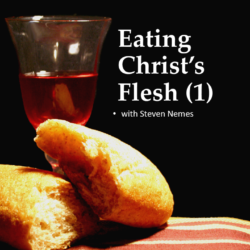

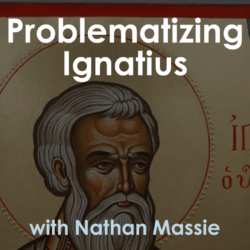
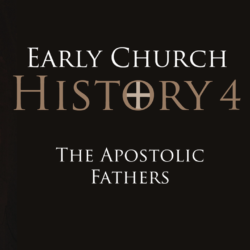
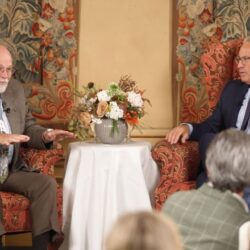
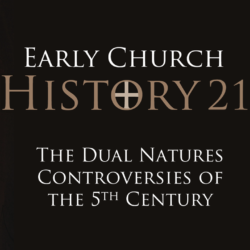
“The whole point is to eat!”
Right? Thank you for addressing this!
In all the evangelical churches I’ve visited over the years, I’ve never participated in communion by eating anything resembling a meal. The Lord’s “suppers” that I’ve experienced have basically been a representation of a representation. That is, what I’ve eaten haven’t been meals. (They haven’t even been child-sized snacks!) At best, they have been _representations_ of meals. And those hints of bread and juice, in turn, have been representations of Christ’s body and blood.
It’s ironic how our lofty desire to make the Bible our standard for faith and practice sometimes gets derailed by logistics and tradition. :-/
Great discussion. Seems like it would be so obvious that Jesus is speaking representationally when saying “This is my flesh” etc. Throughout the gospels he says things like, “I am the vine,” “I am the gate,” “I am the water of life,” “I am the bread/manna from heaven,” “I am the truth,” He says he’s a shepherd who leads the sheep. His listeners know he is not a literal shepherd and not herding literal sheep. Why would anyone take one or two lines of Jesus and state emphatically that “Well, in these verses, of course he is being literal.” He spoke in parables and metaphor. And when he told people they would have to eat his flesh and drink his blood, some were disgusted and presumed he was being literal, but why would they think this? My feeling is they reacted that way in order to find some/any reason to vilify him, as they often took his words out of context in order to paint him in a bad light (like saying he was trying to make himself God). But, clearly, all these usages of representational images were meant to express a certain point and quality/characteristic of Jesus, just as biblical names (thank you, Bill Schlegal) described God (such as “God is salvation”), not the person given that name. Appreciate the discussion!
My church, incidentally, celebrates the communion as a meal in people’s homes the night before Passover almost exactly the way Stephen described. A lot of us also make challah bread Friday nights and have a special meal with bread and wine and indeed call that communion, but it is more casual (similar to the second version of things he proposed). We happen to celebrate the biblical Feasts (Passover, Pentecost, Tabernacles, etc) and Sabbath. Interesting how the practices coincide 🤔😁